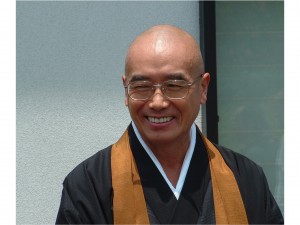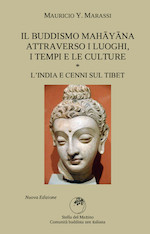On June 23rd the ashes of Koho Watanabe roshi will be interred in the graveyard of Antaiji. He died Saturday the 7th of May, at 74.
As of his request, we did not announce his death immediately, as we would have wanted.
A great man and a difficult one, who dedicated his life, with no reserve, to offering zazen to the world. Following the tradition of other great and difficult men who carried their life forgetting their strength and their weakness, he succeeded with his life story in pointing with pureness at the concrete meaning of the Great Oath.
You who read and us who write owe this encounter to him, to his premises and his consequences.

It was his intuition that led to abandon the old Antaiji temple which, close to being absorbed by Kyoto’s suburbs, would have likely remained an easy target for Western seekers wondering through that city. The choice of a mountain setting, abandoned by the previous occupiers for the excessive isolation and the unmerciful weather, was a risky one. It was a choice supported by faith and by the juvenile strength of a group of monks, gathered together thanks to Watanabe and his predecessor Uchiyama roshi.
The hurdle represented by that place, together with the mandatory promise not to leave the monastery before a minimum of ten years caused Antaiji, the one Watanabe created and wanted, to become between 1976 and 1987 home for thirty people whose strength and motivation were able to overcome the hardest obstacles.
As of today, in between those mountains Antaiji still exists, and more or less the same things that happened thirty years ago still happen, but the continuity is lost: the two following abbots (Shinyu Miyaura firstly, then Muho Nolke who still is in charge), despite their huge effort in keeping alive such a difficult place (which literally cost his life to Miyaura), still offering the chance to completely dedicate yourself to work, study and zazen, they haven’t been able to keep open and alive the dialogue with Watanabe.
In 1987, after leaving Japan, Watanabe moved to Italy and stayed there for five years. He helped put the base on a possibly new course of Buddhism. A path that could fraternally be intertwined with our culture, which is Christian-based: a new chapter of the enculturation of the awakening.
Corrigenda:
After it was pointed out to us that two sentences regarding Shinyu Miyaura and Muho Nolke, who succeeded Watanabe as abbots in Antaiji, contained an implicit criticism towards their actions, we decided to delete them. We apologise to anyone who felt this implicit message in our writing.
* “Not limited by a coded moral, living the great happening of the present without leaning onto preformed rules: this we can name audacity of living” Watanabe Koho







